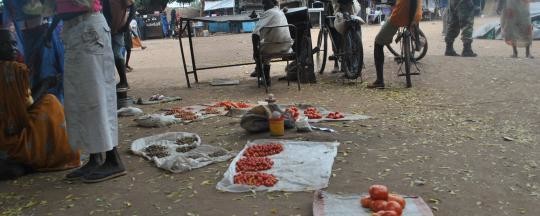Most parts of the Nuba Mountains are experiencing increasing prices of commodities as a result of events in South Sudan which cut supply lines to the border region.
Secretary-general of the region’s trade union Abbas Anur Dauod confirmed to Radio Tamazuj that the region was hit hard by the Juba crisis.
“We are really affected by what happened in South Sudan. The commodities’ prices have gone from somehow tolerable to insanely increased. The prices are increasing and we are not expecting any other commodities coming in to rescue the situation,” he said.
Markets saw a sack of sugar increase in price from 600 to 850 pounds, a bar of soap from 2 to 3 pounds, a sack of flour from 500 to 750 pounds, a jerrycan of cooking oil from 350 to 450 pounds, gasoline from 300 to 400 pounds, and a carton of soap from 180 to 250.
“I am expecting this situation to continue as the situation keeps deteriorating in South Sudan. Another threat is the constant aerial assaults by the Sudan Armed Forces,” Dauod added.
The traders’ representative noted that economic conditions in the rebel-held Nuba Mountains had been improving due to newly harvested crops entering the markets. The new situation has taken them back to square one, said Dauoud.
Related coverage: Unity State economy in collapse as traders flee to Abiemnhom (1 Jan.)
File photo: Buram Market, Nuba Mountains (Radio Tamazuj)



